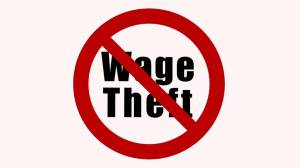
Employers cheating their employees on their pay is a common problem today. The employers take advantage of their employees and their position and make them work some extra hours while paying less or no money for the extra work. In this case, an employee can consult an experienced FLSA overtime lawyer to claim their rights.
Some of the common problems faced by employee include-
- Paying less than the desired or state minimum wage
- Taking a tip credit, but not sharing the tips with the management
- Improper and useless deduction from wages
- No overtime pay
- Not paying the desired pay
- Extending the work hours without paying for extra time
- Not paying for the work done after shift or during breaks
However, if you are a victim of any aforementioned situations, it is always beneficial to seek help from any experienced lawyer. An experienced lawyer will help you by providing all the information about your labor rights and labor laws. Following are some of the situations where hiring an accomplished lawyer can be helpful-
- Overtime- If your employer refuses to pay for hours over 40, then the employer must have an exemption to the labor code, which can be quite complicated. There are a number of situations where consulting an experienced lawyer can be very helpful. You can speak to the lawyer and find out about your overtime rights.
- Wages- If the your employer makes you work for some extra time or makes you conduct some activities such as seminars etc that are actually for the benefit of the employer, then it is the duty of the employer to pay you for the work you have done. It is your right to be paid for all the extra work that you do.
- Improper deduction- If the employer deducts unnecessarily from your pay, then you must consult a professional attorney in your area. Legal help in this situation can save you from any improper deduction from your salary.
Therefore, if you are a victim of wage theft, you should immediately consult with an experienced attorney or a labor lawyer in your area.


